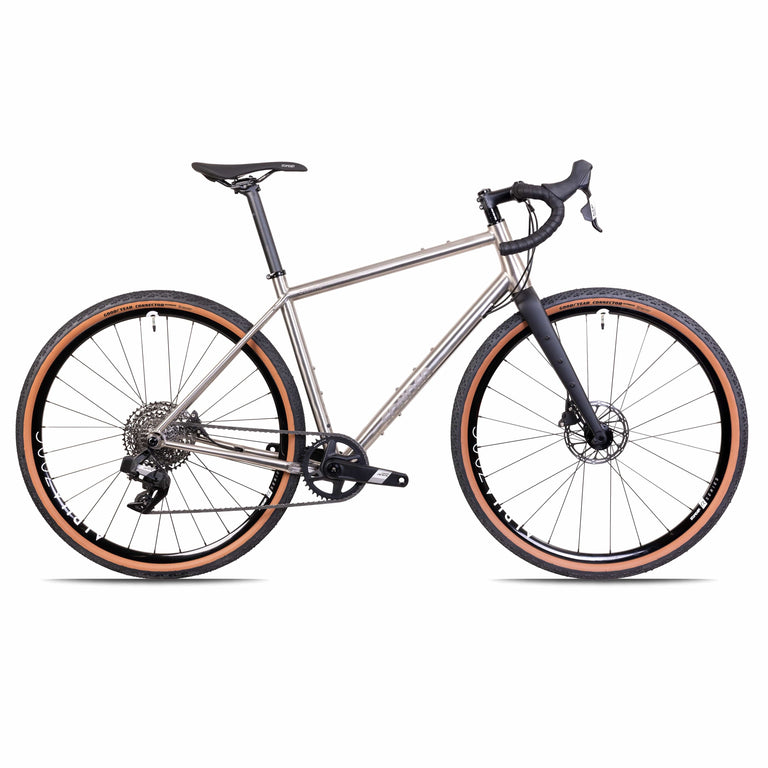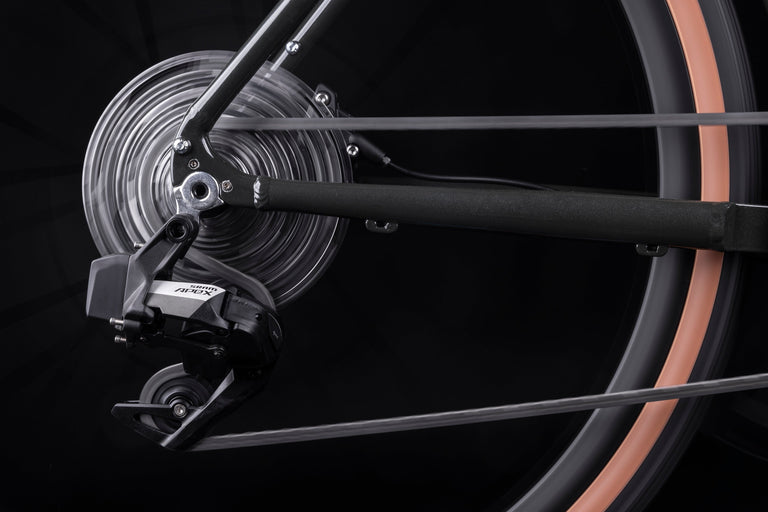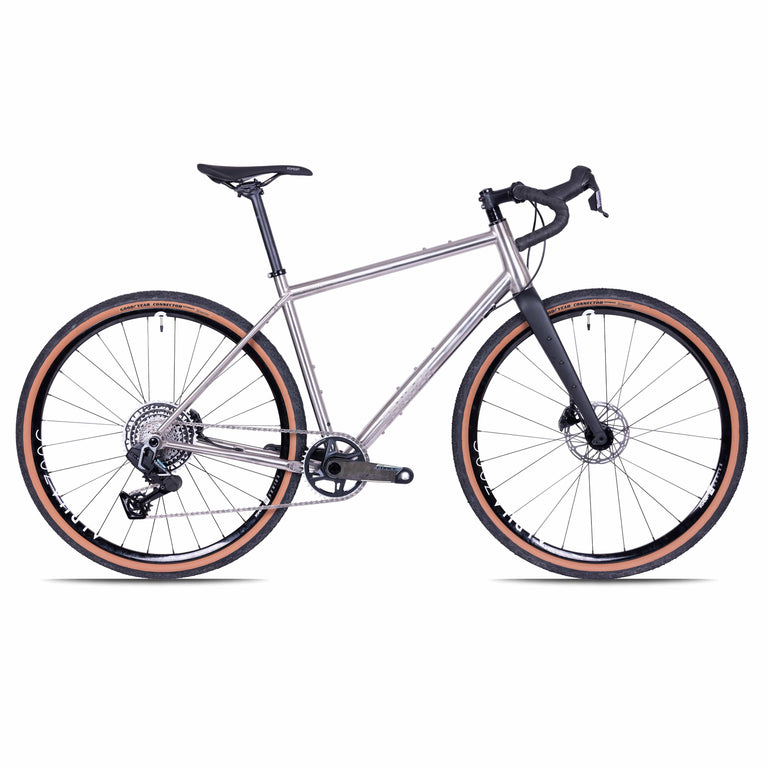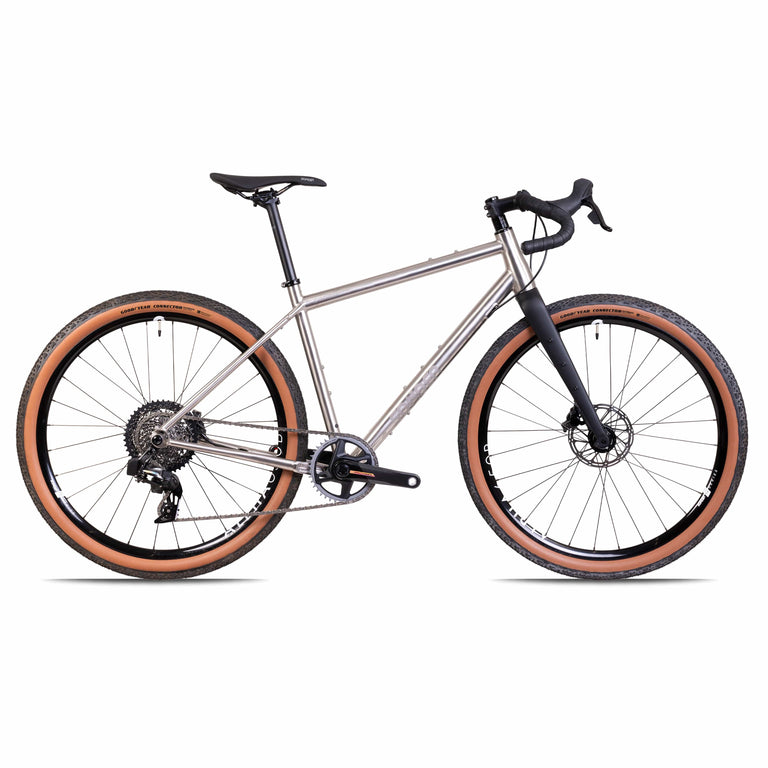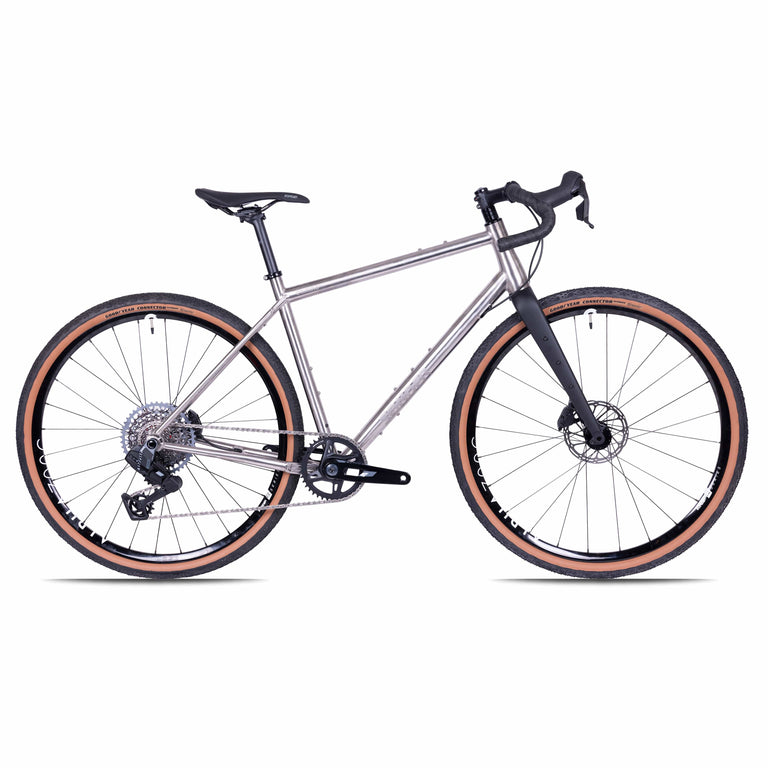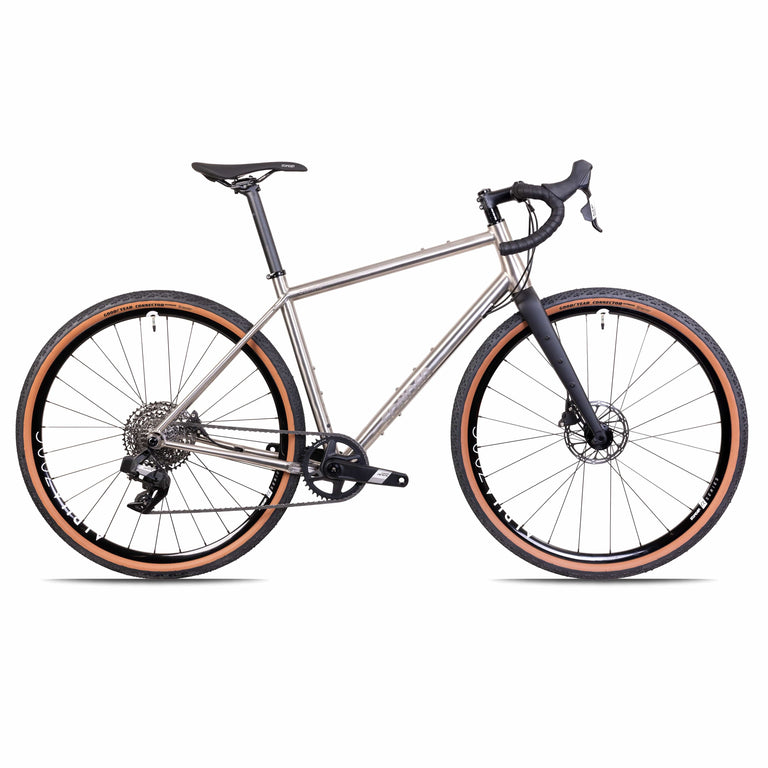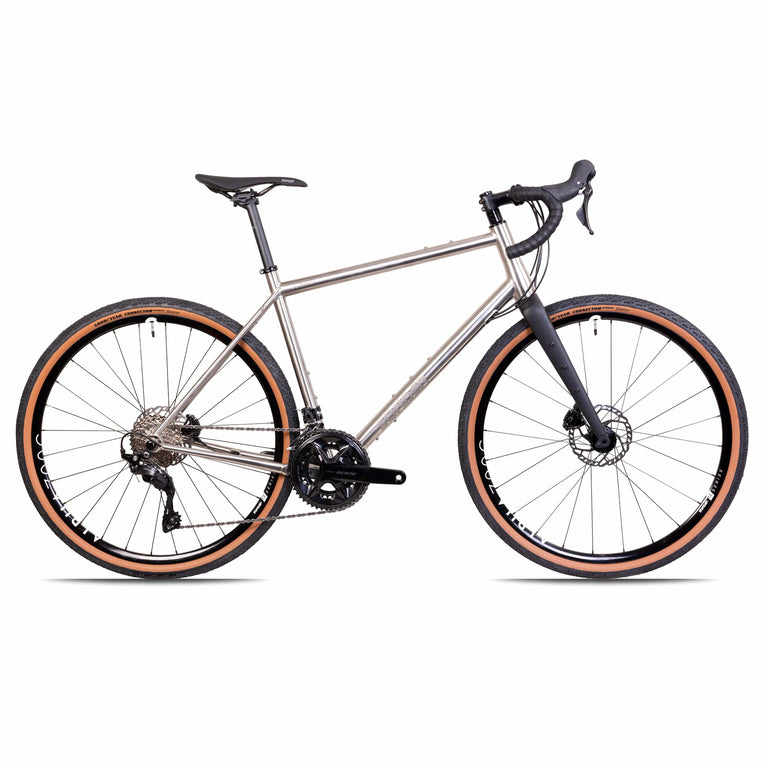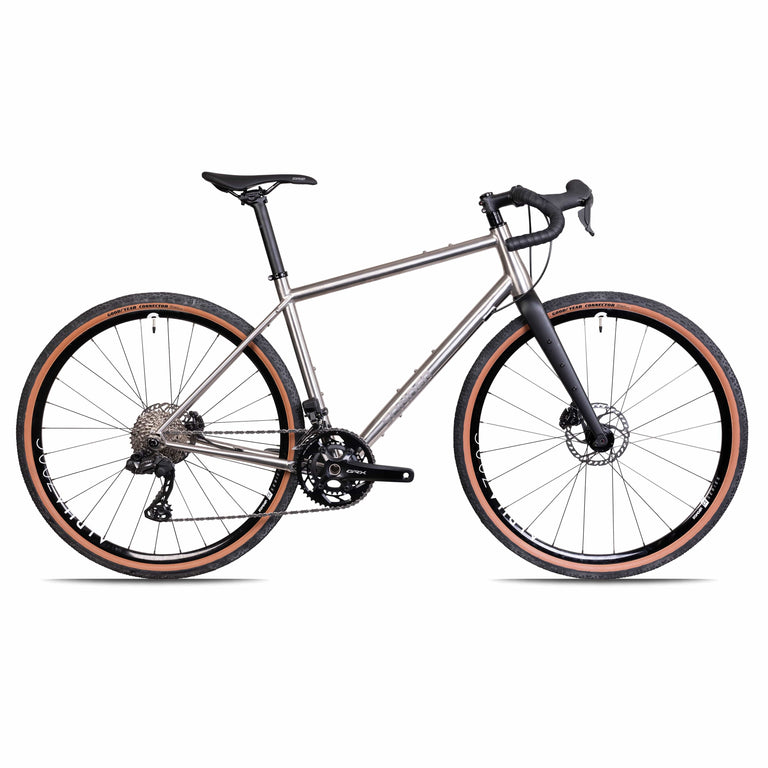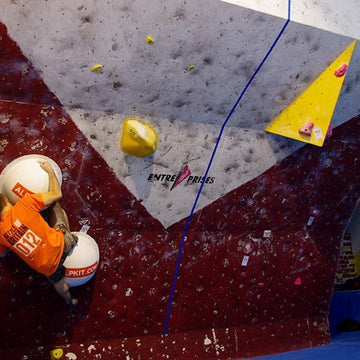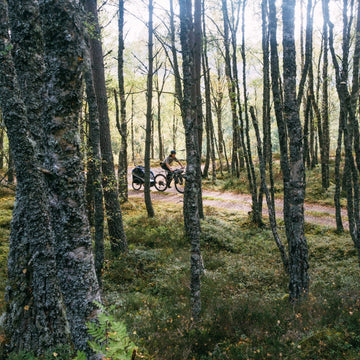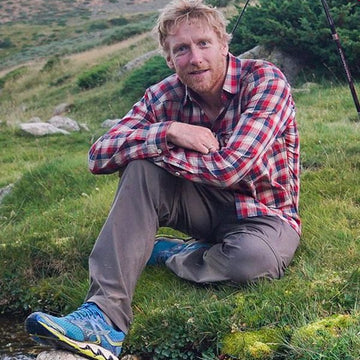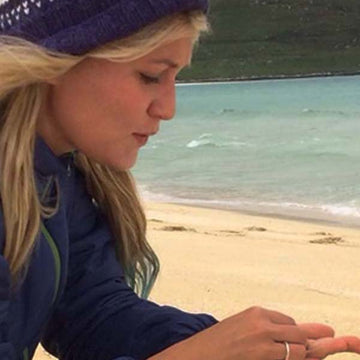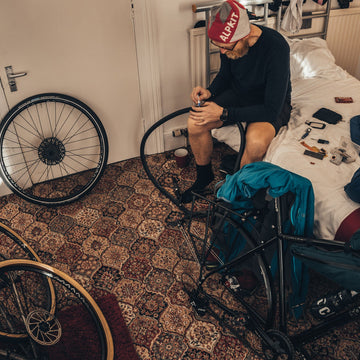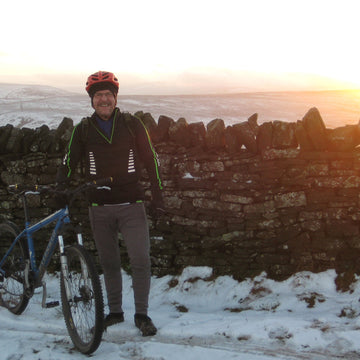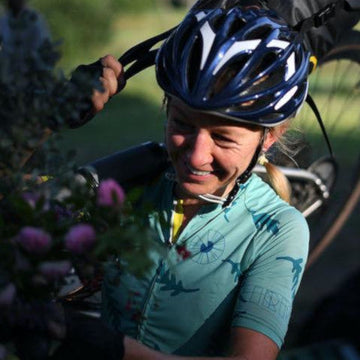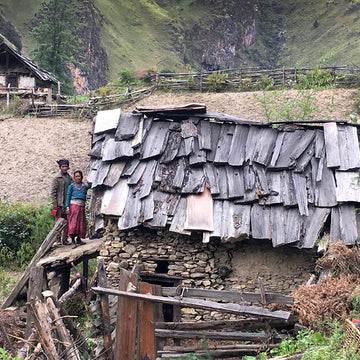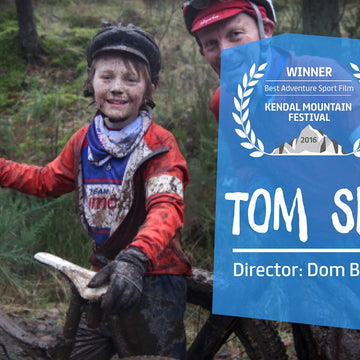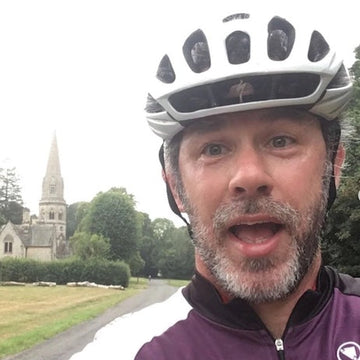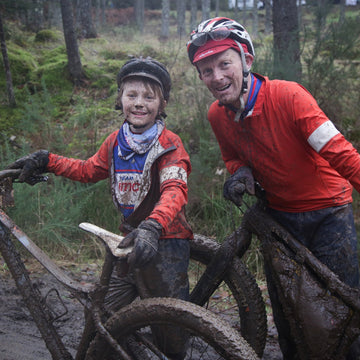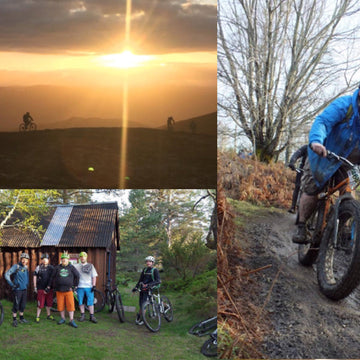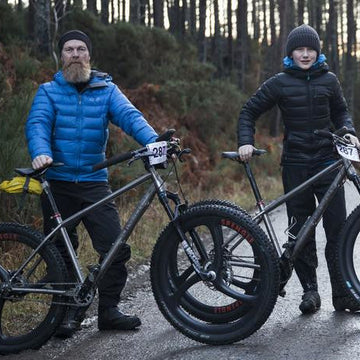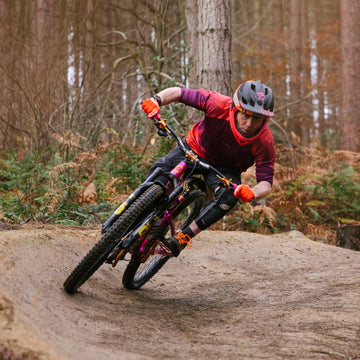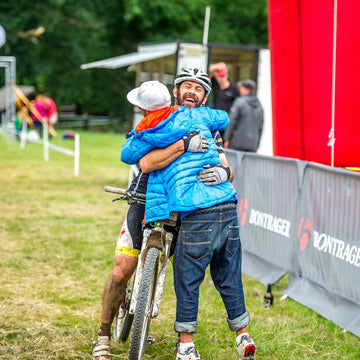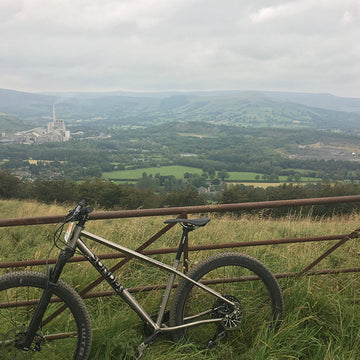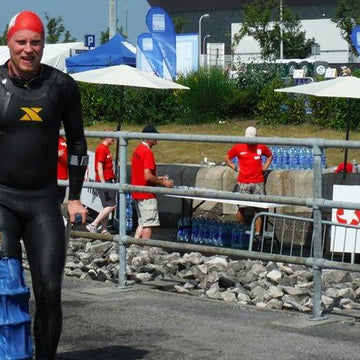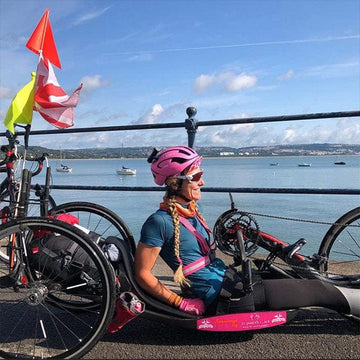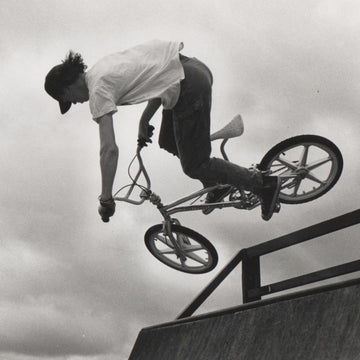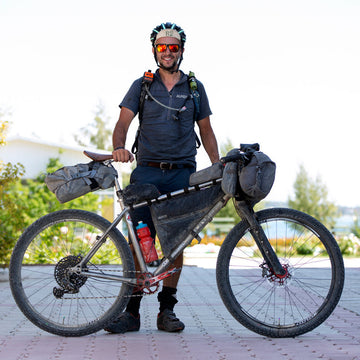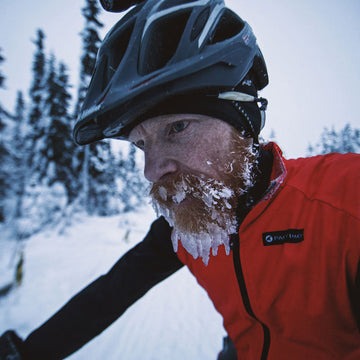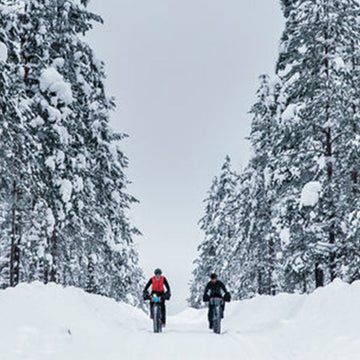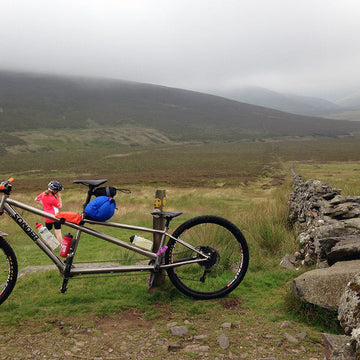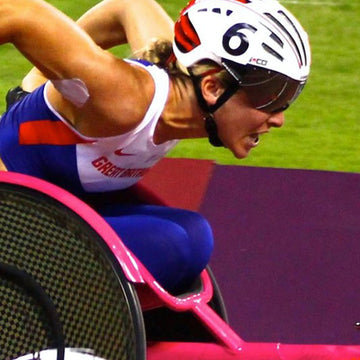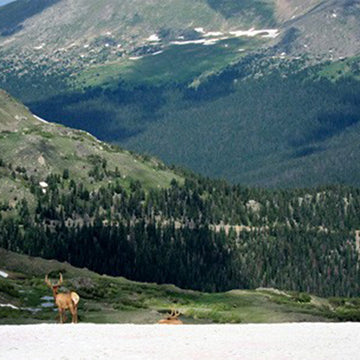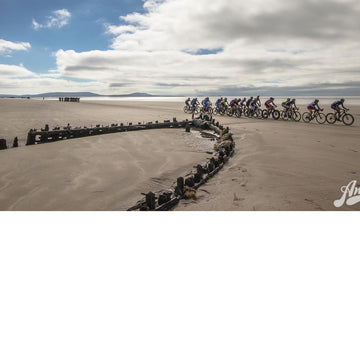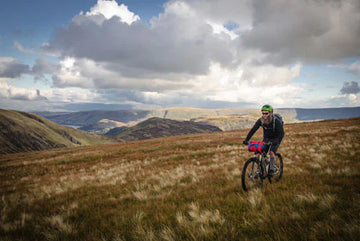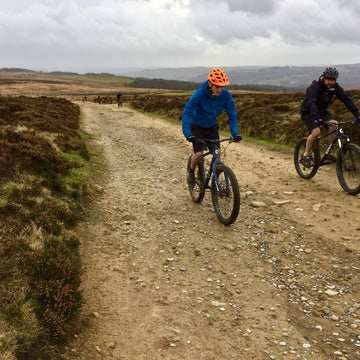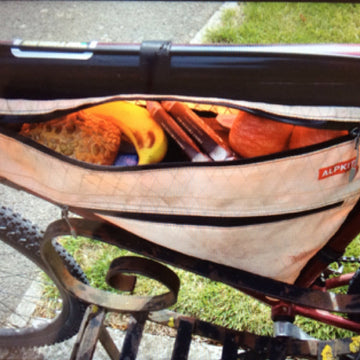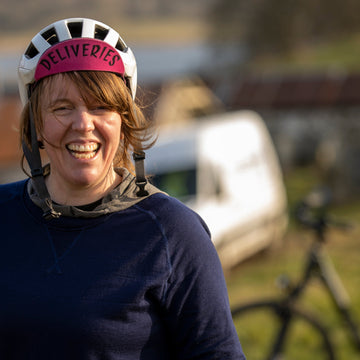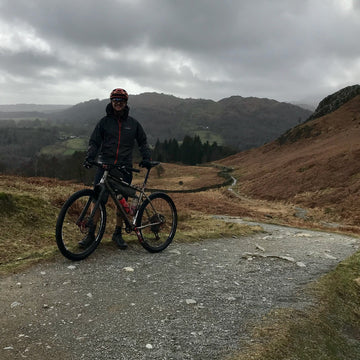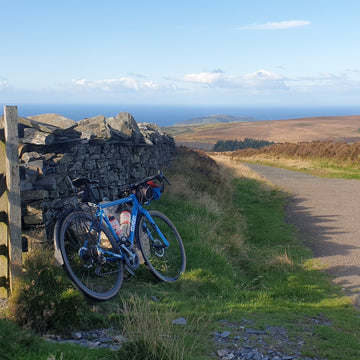
We chatted to Alpkiteer Ian Palmer about how his winter training. He promises us that it's a lot more fun than it sounds! It's the starting point of his cycling year.
We chatted to Alpkiteer Ian Palmer about how his winter training. He promises us that it's a lot more fun than it sounds! It's the starting point of his cycling year.
XC Training
November
November means it’s time to get on my bike and start actually training, not just faffing about doing what I like. After wondering if I could ever get back to racing following illness last year, I decided to have a go again and maybe train harder, get faster, be less average. So what I’m writing about is how to train through a winter ready for a start line at some point in March.
The discipline that I ride is xc (cross country) mountain biking or xco as it’s also known. The grand vet (age 50-59) category may be a field of greying old men, but don’t let that fool you into thinking it isn’t competitive; some of these riders have been at the Olympics or World cups. By our age we should probably know better, but we all like to give each other a friendly kicking around some woods/quarries every few weeks. great. On the surface, it may look very casual and fun but behind the scenes, every one of us has suffered through a winter of unpleasantness!
Coaching
I’ve had a coach to help me with this unpleasantness for over 20 years; not because I’m special or think I’m particularly good, but because if I’m going to do something, I’d rather do it to the best of my ability and don’t see the point otherwise.
Slow riding

Lots of coaches/internet articles/books say to get fast you have to ride slow. You do lots of easy riding and keep your heart rate in the aerobic zone (also known as fat burning or Level 2).
I have a 15-20 beat window which I like to ride in which often means sprinting downhill to keep the pace high enough and crawling uphill so as not to go over your maximum rate. Ideally you need to find a flattish route (hard in the Lake District) in order to avoid the above challenges. It feels very strange at first and pretty much eliminates you from any social rides unless you have a willing friend who has the same goal.
So what does all this super-slow riding actually do for you?
It makes your body burn fat and gives you healthy mitochondria which will eventually allow you to go faster for longer. Having Lyme disease the other year meant that my mitochondria were walloped and I get tired very easily unless I’m careful with resting/eating etc. Riding in your Level 2 zone also makes pathways in your muscles for your blood and it acts like a massive sponge to soak up that lactic acid you produce when racing. It’s a win-win.
If you go into your anaerobic heart zones (pushing the pace a little faster) you burn glycogen not fat. If you stray into your upper heart rate zones it takes about 30 mins for your body to burn fat again. So if you have a 3hr slow ride planned and you sprint up 3 hills, that could mean you’ve only actually spent 90 mins in the correct zone not 3hrs. Riding slow might sound easy but you actually have to be very disciplined to stick to it properly.
The other benefit is that you should not be overly tired afterwards, meaning that you can do hours and hours of it. You should be able to easily hold a conversation when doing this type of ride (if you’re able to find anyone willing to ride at this pace of course!). My old coach would swear at me for not doing this technique enough (I thought no pain, no gain and went too fast, missing the point entirely).
These long rides are bliss at the start of Autumn; the roads are clear of summer traffic, if your friends tag along you can chat and you have some warmth in the air. However, in the middle of December when it’s sleeting sideways and your friends desert you, it’s pretty miserable. You can of course stay indoors and watch films on the turbo or ride on Zwift. I once spent a winter doing this with two broken wrists! Obviously if this was all the training you did, you’d only be very, very efficient at going slow for a long time. To improve your speed, you then need to start adding in the hurty stuff.
The hurty stuff

As mountain bike racing consists of lots of short sharp accelerations, I try to replicate this on the turbo, for example, doing 6 second efforts every minute whilst riding relatively hard. I do this for an hour and have to get used to achy legs again.
The other number that gets bandied about with bike training is your ‘FTP’ (functional threshold power) which is the length of time you can hold you threshold heart rate. I had a particular sadistic coach who came out with a 16-week winter plan to get my FTP number up by 20% (this is pretty huge leap). In all my years of training, I have never managed to finish the 16-week block. Still, I continue to try, am currently on week 5 and absolutely dread these sessions (this explains my reference to ‘unpleasantness’ earlier). I’m determined to get to the end of the block this year, even if it takes me until March! All of these sessions could take place outside on a favourite hill, but I just prefer the turbo trainer; it’s a bit more controlled and I actually like focusing on the numbers on the screen.
Weight training
Lastly, as an ageing athlete, I need to move heavy bits of metal around. This is because as you get older your muscles atrophy. I must confess that I’m not very good at this at all. Firstly, it’s boring, secondly, I don’t really know what I’m doing and thirdly, I struggle to see what it has to do with bikes. Actually, I do know that strong muscles (a rock-solid core in particular) help with every aspect of racing, allowing you to handle the bike better and stave off muscle fatigue. It’s just that when you want to get better at riding bikes, you generally want to do just that rather than shift a heavy object from A to B.
The plan

So here’s what a typical mid-winter weekly plan might look like:
- Monday – Rest
- Tuesday – Strength
- Wednesday – long ride 1
- Thursday – FTP builder
- Friday – Jog with the dog (if I can be bothered)
- Saturday – Long ride 2
- Sunday – Intervals
So that’s it; a weekly plan to hopefully become slightly less rubbish. It takes about 10hrs of my life each week. Sometimes I do less, sometimes more (not often). I like the structure of my week to be the same, week in week out. This is not for everyone I realise. Sometimes I’ll go for a run or ride a gravel bike, but ironically I rarely ride the mountain bike in the winter as cleaning it can take longer than the ride itself.
I start to look forward to the days getting longer so the 21st of this month is what I aim for. If I can keep this up till then, surely it will all be downhill till race season!
Sonder Bikes
Camino Al Apex1 AXS XPLR
- Sram Apex AXS XPLR 12-speed groupset
- Sonder Alpha I25 Gravel UK Made wheelset
Camino TI Apex1 AXS XPLR
- Sram Apex AXS XPLR 12-speed groupset
- Sonder Alpha I25 Gravel UK Made wheelset
Camino Al Rival AXS XPLR
- SRAM Rival AXS XPLR 13-speed groupset
- Sonder Alpha I25 Gravel UK Made wheelset
Camino TI Force AXS XPLR
- SRAM Force XPLR 13-speed groupset
- Sonder Alpha I25 Gravel UK Made wheelset
Camino TI Rival AXS XPLR
- SRAM Rival AXS XPLR 13-speed groupset
- Sonder Alpha I25 Gravel UK Made wheelset
Camino Al Apex1 Flat Bar
- SRAM Apex 12-speed groupset
- Sonder Alpha I25 Gravel UK Made wheelset
Camino Al 105 Di2
- Shimano 105 R7170 Di2 12-speed groupset
- Sonder Alpha I25 Gravel UK Made wheelset
Camino Al Frame And Fork
- 6061 aluminium frame
- Gravel geometry
- Carbon monocoque fork
- Huge tyre clearance


